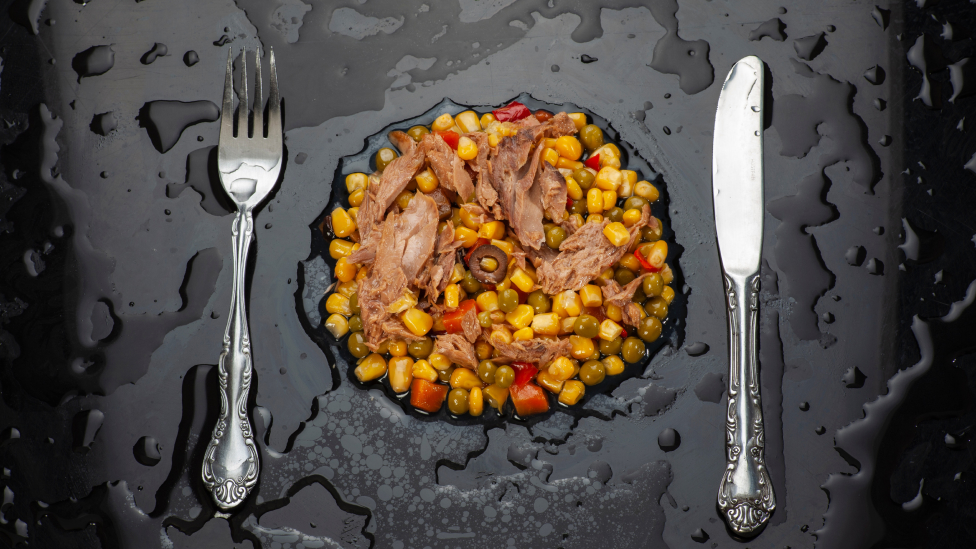Culinary traditions are an essential part of cultural heritage, reflecting the history, values, and flavors of a community. Canned food has become an integral part of culinary traditions, allowing for the preservation and accessibility of traditional dishes.

This article explores the relationship between canned food and culinary traditions, highlighting how canned food has influenced and enriched diverse cuisines, while also supporting the preservation of food heritage.
1. Preserving Culinary Traditions:
Culinary traditions are often passed down through generations, carrying with them the flavors, techniques, and stories of a community. However, the availability of fresh ingredients and the time-consuming nature of traditional recipes can present challenges to their preservation. Canned food offers a solution by providing a convenient and reliable means of preserving traditional dishes for future generations.
2. Accessibility to Traditional Ingredients:
Canned food allows individuals to access ingredients that may be difficult to find or seasonal in nature. Certain traditional dishes rely on specific ingredients that may not be available year-round or in certain geographic locations. Canned food provides a practical alternative, ensuring that essential components of traditional recipes are readily accessible, regardless of time or place.
3. Cultural Exchange and Fusion:
Canned food has facilitated cultural exchange and fusion by allowing traditional ingredients from different cuisines to be shared and incorporated into new recipes. Canned goods from various parts of the world have made their way into kitchens, enabling the creation of unique dishes that blend different culinary traditions and flavors.
4. Convenience without Compromising Flavor:
Canned food offers convenience without compromising the flavors and integrity of traditional dishes. Canning technology has advanced significantly, ensuring that the taste, texture, and nutritional value of canned ingredients closely resemble their fresh counterparts. This allows individuals to enjoy the essence of traditional recipes even when fresh ingredients are not readily available.
5. Traditional Canned Food Products:
Many cultures have traditional canned food products that are deeply rooted in their culinary heritage. These products often hold cultural significance and are used as key ingredients in traditional dishes. Examples include canned tomatoes in Italian cuisine, canned coconut milk in Southeast Asian cuisine, and canned beans in Latin American cuisine. These products not only preserve culinary traditions but also contribute to the distinct flavors and textures of traditional recipes.
6. Revitalizing Traditional Recipes:
Canned food has played a role in revitalizing traditional recipes that may have been at risk of being lost or forgotten. By preserving essential ingredients, canned food allows individuals to recreate traditional dishes with authenticity, preserving their cultural heritage and promoting culinary diversity.
7. Supporting Local Producers:
Canned food can also support local producers and traditional farming practices. Many canned food products rely on regionally sourced ingredients, helping to sustain local agricultural communities and preserve traditional farming methods. By purchasing canned food products that prioritize local sourcing, consumers can contribute to the preservation of culinary traditions and support sustainable food systems.
8. Adaptation and Innovation:
Culinary traditions are not static but evolve over time. Canned food has allowed for adaptation and innovation within traditional cuisines. Chefs and home cooks have found creative ways to incorporate canned ingredients into traditional recipes, adding new dimensions and flavors while still honoring the essence of the original dishes.
9. Passing Down Culinary Knowledge:
Canned food can serve as a tool for passing down culinary knowledge and traditions to future generations. By using canned ingredients in traditional recipes, families can ensure that the techniques and flavors of their cultural heritage are preserved and perpetuated.
10. Culinary Tourism and Cultural Identity:
Culinary traditions play a significant role in cultural tourism, attracting visitors who seek authentic food experiences. Canned food can contribute to culinary tourism by enabling the preparation of traditional dishes even in regions where fresh ingredients may be scarce. This allows communities to share their culinary heritage and strengthen their cultural identity.
Conclusion:
Canned food has become an essential component of culinary traditions, allowing for the preservation, accessibility, and adaptation of traditional dishes. By providing convenience, accessibility to traditional ingredients, and the ability to pass down culinary knowledge, canned food supports the preservation of cultural heritage and culinary diversity. Through the fusion of flavors, cultural exchange, and the revitalization of traditional recipes, canned food continues to enrich culinary traditions around the world, ensuring that future generations can savor the flavors and stories of their cultural past.



采访刊发中国罐头⾏业-01.jpg)


